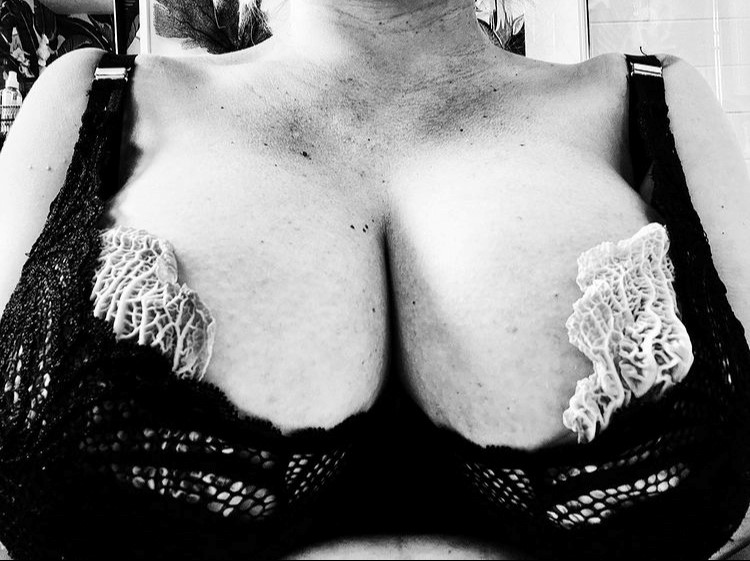Paloma Faith getting real about breastfeeding and engorgement
Image credit: @palomafaith, Instagram
Singer, Paloma Faith, has always been real with her followers about her experience of pregnancy. After giving birth to her second baby girl, she has opened up about experiencing acute engorgement which has affected her ability to breastfeed. On a recent Instagram post she said:
Day 3 and my milk has come in..... I’ve been diagnosed with acute engorgement. This means I have too much milk and the baby isn’t big or strong enough to drain it and get it out. It’s painful. The boobs are rock hard. I’m trying massage while feeding, it hurts so much like a deep tissue massage and not much is helping. Hot showers/massage/hand expressing and poor baby is really over it with the exhausting hard work she needs to do to get the milk out of all those swollen blocked ducts. I’ve been told it should settle. Let’s hope I don’t end up in a and e with it before that! This is some next level pain! Mum life is REALLLLLLL
After posting about the birth of her baby, Paloma said:
I’m now going through the constant worry of bottle vs breast, last time I breast fed exclusively and I think it was too hard! I don’t know if I wana put myself through that this time..... but I’m Trying anyway.
One key thing to remember when it comes to breastfeeding is the importance of seeking support. It is normal for breastfeeding to be a bit uncomfortable at first, but it shouldn’t be painful or cause any emotional stress. If you are experiencing pain, your, midwife or health visitor or local breastfeeding support can help you find the right position for you, make sure your baby is attaching properly and give you any other support you need.
Breastfeeding has many benefits for your baby, like reducing the risk of your baby getting infections now and in the future. That being said, you should never feel guilty for combination feeding or formula feeding your baby instead, so long as you and your baby are happy and healthy. However, if you want to continue trying to breastfeed, it is important to know that support is available if you are finding it tough.
Why do my breasts feel painful?
If your breasts feel full (engorged), it can help to feed your baby, massage your breast or express by hand. But try to avoid expressing regularly as it can increase your milk supply and make the problem worse.
A build-up of milk can sometimes cause mastitis. This usually affects one breast and symptoms can come on quickly. These include:
- a red, swollen area on your breast that may feel hot and painful to touch
- a breast lump or area of hardness on your breast
- a burning pain in your breast
- nipple discharge, which may be white or contain streaks of blood
- flu-like symptoms, such as aches, a high temperature (fever), chills and tiredness.
It’s most common to develop mastitis in the first 3 months of breastfeeding, although it can happen at any time. It’s important to see your GP if you have any symptoms because you may need antibiotics. Most women recover quickly, but if mastitis isn’t treated properly you may need hospital treatment. It also can help to:
- stay well hydrated
- take paracetamol or ibuprofen
- avoid tight fitting clothes, including bras
- continue to feed your baby and express any remaining milk after a feed.
Your GP, midwife or health visitor can also help you improve your breastfeeding technique to make sure your baby is well attached during feeds.
One important thing to remember if you have mastitis is to keep breastfeeding your baby as this will help ease the pain. Some women worry about passing the infection onto there baby, but this is not the case and is safe to continue.
Cabbage for engorgement
To accompany Paloma’s messages around breastfeeding, she posted a picture of herself on Instagram with cabbage leaves lining her bra. There have been studies into the use of cabbage leaves in breastfeeding and it has been shown to:
- reduce pain of engorgement
- reduce the hardness of the engorged breasts
- increase how long you can breast feed for.
Placing a chilled cabbage leaf on the breast can offer some relief from engorgement symptoms, but it is always important to speak to a health professional if you have any worries about breastfeeding.

It’s great that Paloma is trying to breastfeed her baby, but more important is that she is speaking out about some of the difficulties she is experiencing so other mums know they aren’t alone. If you are struggling to breastfeed, it is really important to speak with your midwife or health visitor about what support is available in your local area so you can get the help you need.
-
Read more about 'My story: Having sex for the first time post-partum 'After birth blogs
My story: Having sex for the first time post-partum
-
Read more about 'What is a tongue-tie? 'After birth blogs
What is a tongue-tie?
-
Read more about 'Supporting my partner through pregnancy after a traumatic birth 'After birth blogs
Supporting my partner through pregnancy after a traumatic birth
-
Read more about 'Choosing a car seat for your baby 'After birth blogs
Choosing a car seat for your baby
